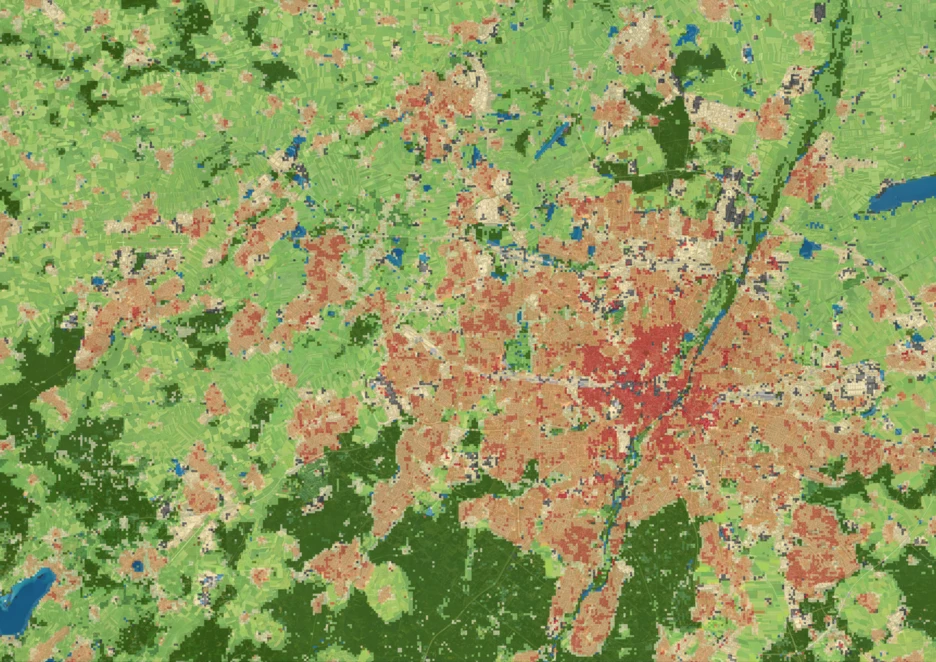GEBIKI - Linking Genomics and Remote Sensing through AI for Efficient Assessment of Biodiversity
Funded by BMFTR
Project Leader at TUM
Prof. Dr.-Ing. Xiaoxiang Zhu
Project Scientists at TUM
Veronika Buchauer
Cooperation Partners
Helmholtz Munich
Rifcon GmbH
Munich Science Communication Lab (LMU)
Runtime
2024 – 2027
The GEBIKI project develops a comprehensive, non-invasive approach for biodiversity monitoring by combining genomic sequencing from the Helmholtz Center with advanced Earth Observation (EO) and AI methods at TUM. The goal is to track biodiversity in urban environments across Germany over multiple years, combining molecular data with remote sensing data to analyze biodiversity changes and anthropogenic influences. TUM’s contribution focuses on the development of a time series, multimodal self-supervised learning (SSL) model to detect and analyze anthropogenic impact. This includes creating large-scale EO datacubes from Sentinel-1, -2, and -5p missions, and designing a foundation model tailored to biodiversity-relevant downstream tasks such as Local Climate Zone (LCZ) classification. The resulting EO-based anthropogenic impact will be validated against genomic data, enabling robust, scalable, and interpretable biodiversity monitoring for urban planning.
